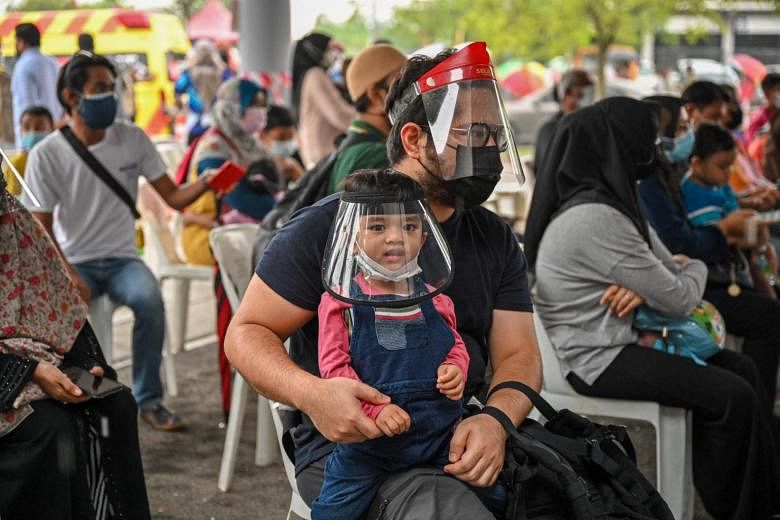PUTRAJAYA (THE STAR/ASIA NEWS NETWORK) - Malaysia will give priority to vaccinating children with underlying health conditions first, amid rare reports of myocarditis occurring in children who had received the Pfizer-BioNTech Covid-19 vaccine.
Health minister Dr Adham Baba said adolescents who are healthier would receive their vaccine after Phase Three of the National Covid-19 Immunisation Programme is completed.
"Adolescents, who are at a higher risk of severe Covid-19 due to chronic underlying medical conditions, may benefit from the Pfizer Covid-19 vaccine," said Datuk Seri Dr Adham at the Covid-19 Immunisation Task Force press conference with vaccination programme minister Khairy Jamaluddin.
"Healthy adolescents, who are at very low risk of serious Covid-19 infections, may be offered vaccinations - but at a later stage.
"This takes into consideration results of an ongoing clinical trial using a lower dosage of the Pfizer vaccine in children as well as real-world safety data."
Real-world data involving millions of adolescents in other countries indicated that there is a low risk of myocarditis or inflammation of the heart muscle among children jabbed with the Pfizer vaccine.
The United States' Food and Drug Administration (FDA) had issued a warning of a rare risk of heart inflammation among children who received the Pfizer vaccine.
This occurs one in 15,000 (66.7 per million) of those in the 12-17 age group. The rare side-effect seems to affect male adolescents and young adults more than females and other age groups, Datuk Seri Dr Adham pointed out.
"This compares to a risk of two per million of an under-18 child dying from serious Covid-19 in Malaysia," he said.
So far, the Comirnaty vaccine by Pfizer-BioNtech is the only Covid-19 vaccine that has been approved by the National Pharmaceutical Regulatory Agency (NPRA) for use on children aged 12 years and above in Malaysia.
Mr Khairy said Malaysia was waiting for further data from a clinical trial by Sinovac on its usage on adolescents.
"At the moment, we would only be vaccinating children with underlying conditions who are planning to go back to school - just a small group. By the time we finish Phase Three, we should have enough data to determine whether to proceed with vaccinating adolescents with Pfizer or with Sinovac," he Khairy.
As of June 29, 116,378 children have been confirmed to be Covid-19 positive in Malaysia. Of the number, 37,205 are aged between 13 and 17 years.
"Although children accounted for 15 per cent of total cases, they tend to be asymptomatic or have milder symptoms and are less likely to develop severe illness," said Dr Adham.
To date, the Health Ministry has received 18.6 reports via MySejahtera of minor side effects for every 1,000 vaccine doses administered.
Only 1.4 reports out of 1,000 doses were categorised as AEFI, or "adverse events following immunisation".
"Of that total, only 0.07 were classified as serious and required hospitalisation," Dr Adham said.
Those with long-term medical conditions due to a vaccination reaction were eligible for RM50,000 (S$16,177) compensation. Anyone who faced permanent disability or death will get up to RM500,000.











